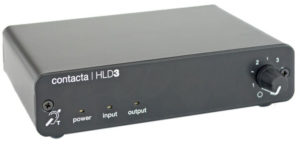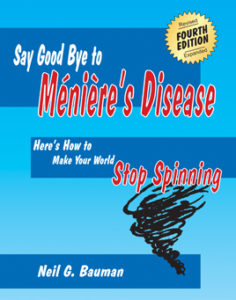by Neil Bauman, Ph.D.
© January, 2022
A lady explained,
I have a copy of your book Ototoxic Drugs Exposed, and have used it for reference many times.
She then asked a very interesting question,
I’ve become a cochlear implant recipient and will go bilateral–hopefully this year. Do CI recipients need to worry anymore about potentially ototoxic drugs?
The answer is “yes”. This may surprise you, so let me explain why I say this.
While it is true that the cochlear implant bypasses the outer, middle and the cochlear side of the inner ear, there are two areas where ototoxic drugs can still affect your ears.
First, some ototoxic drugs can damage how your auditory nerve and the auditory circuits in your brain function. The result can be poorer sound discrimination. Thus, you may not be able to understand speech as well as you otherwise would. This can be a real problem.
Here are three real-life examples.
A man explained,
I have experienced a decline in the clarity of my hearing when taking medications that are NSAIDs such as Aspirin, Ibuprofen, Nabumetone, Naproxen, etc. I’ve had recurring back problems for over a year now and take NSAIDs to get it under control. From time to time I’ve noticed that the sound from my cochlear implant seems a little fuzzy or muddy. I now realize that it seems to be during times when I’m taking those drugs that this happens.
A lady who has a cochlear implant reported,
I have been taking Ibuprofen (Advil) for the past ten days. During this time I have not been able to understand on the phone as well as I usually do. I think it is the Advil I’m taking.
She stopped taking the Ibuprofen, and four days later she exclaimed,
Today I can hear fine on the phone. I never associated my hearing loss with taking Advil.
Another lady who also has a cochlear implant recounted,
After just a few days on Fluoxetine (Prozac) I noticed that the volume of my cochlear implant was unbearably loud. I stopped taking the Prozac immediately. My audiologist had to significantly decrease the setting on my processor.
Note that one of the side effects of taking Fluoxetine is hyperacusis where you hear normal sounds as being much too loud. This happened to this lady even though she had a cochlear implant because hyperacusis is one result of the auditory circuits in the brain getting out of balance due to drugs in this lady’s case.
Thus, in some cases certain drugs do indeed affect your hearing ability via your cochlear implants.
In addition, don’t forget that the vestibular side of your inner ears controls your balance function. Since most ototoxic drugs also can mess up your balance (dizziness, balance disorders, ataxia, vertigo, etc.) whether you have cochlear implants or not doesn’t make a difference. You still have to watch out for these vestibular side effects even though you have cochlear implants.
Finally, be aware that ototoxic drugs, just like most other drugs, have negative side effects that show up in other areas of your body. So, to avoid these negative side effects, you should minimize your drug usage as much as you can by looking after your health via natural means.



My doctor put me on Lexapro for depression. Should I be concerned about the side effects? I have bilateral vestibular hypofunction.
Hi Dan:
I’d always be concerned about the side effects of taking any SSRI drugs–both ototoxic and otherwise. If you have depression, my choice would be to take the herbal St. John’s Wort. Studies show it works as well as anti-depressants and with FAR fewer side effects.
If you choose to take St. John’s Wort make sure it says 3 things on the bottle. The word “hypericin” which is the active ingredient, the word “standardized” so you know that you are getting a certain amount of hypericin in each pill, and the numbers 0.3% which is the concentration of hypericin you are getting.
If you take the Lexapro, you may not damage the hearing side of your ears since you don’t have much hearing, but you could make your balance issues much worse.
Cordially,
Neil